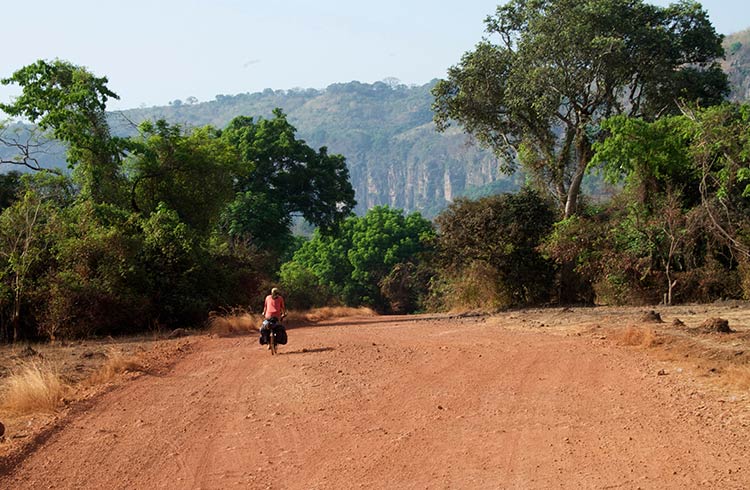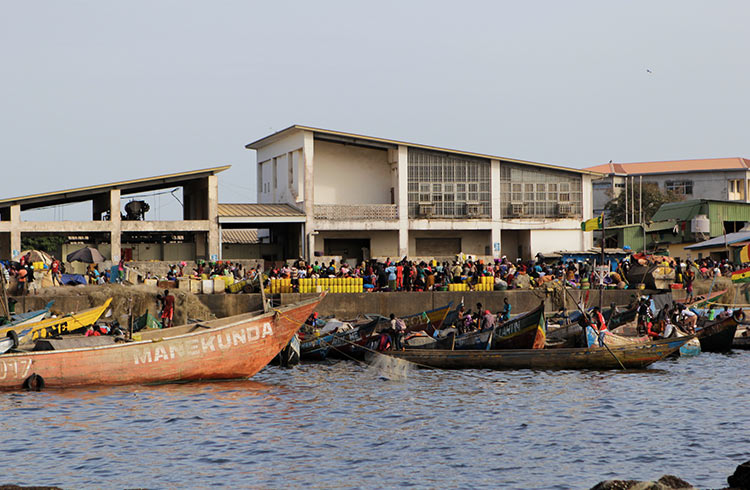Etiquette Tips and Local Laws for Travelers to Guinea
Traveling to Guinea in West Africa? Find out about dress codes, etiquette and local laws and customs before you go.
 Photo © Getty Images/Maarten Van De Biezen / EyeEm
Photo © Getty Images/Maarten Van De Biezen / EyeEm
Carry identification at all times
In the Republic of Guinea, citizens and travelers are required to carry original identity documents at all times. Police or other law enforcement agencies can request to see identification at any time. Carry your identification discreetly, and keep it out of sight at all times while traveling around.
Religion in Guinea
Islam is the majority religion of Guinea. Approximately 85% of the population is Muslim, 8% Christian and 7% follow traditional African animist beliefs. There is a small Baha'i community. A small number of Hindus, Buddhists and Traditional Chinese religious practitioners are found in the expatriate community.
Dress modestly when you travel around Guinea. Women should cover their arms and legs, and pack a headscarf in case you are required to wear one. Men should be aware it's not common for locals to wear shorts, and should pack a long pair of lightweight trousers.
Here are a few other etiquette tips for travelers in Guinea:
- Greetings are very important to Guineans, and it is rude to ask a question or make a request without first asking about the person's health and wellbeing of their family
- These questions are formulaic and may be repeated several times. Following the questions and responses, a firm handshake or, among the upper class, a brief kiss on the cheek
- It is impolite to use the left hand in any social interaction, whether to shake hands, point, pay, or hand an item to someone.
Importing and exporting laws in Guinea
Guinea has strict currency import and export regulations. To avoid inconvenience and embarrassment, visitors should study the regulations in detail before entering or leaving the country.
Guinea's rather quaint import and export regulations are strictly enforced. On arrival, visitors are entitled to bring in 1000 cigarettes or 250 cigars or 1000 grams of tobacco, one (opened) bottle of alcoholic beverage and a quantity of perfume arguably for personal use.
On departure, they are prohibited from taking weapons and firearms, explosives, radioactive materials, plants and animals, food, obscene literature or religious literature.6
Throughout sub-Saharan Africa, trading scams involving diamonds, gold export and gold certification are common. In Guinea, a license is required to export precious gems. Penalties are heavy for those involved in attempted gem smuggling.
Is Guinea safe for LGBTQ+ travelers?
In most of Sub-Saharan Africa, homosexuality is a taboo subject, rarely discussed and in some countries, illegal. Homosexuality is illegal in Guinea, and there are no discrimination laws in place. To be on the safe side, keep public displays of affection to a minimum to avoid any unwanted attention.
Drug laws in Guinea
In 2008 the regional representative of the UN Office on Drugs and Crime said, "Guinea has become a major drug-trafficking hub, and the trade there is now potentially more dangerous than in Guinea-Bissau."
An official from the Guinean government's anti-narcotics bureau (OCAD) said, "Corruption at the highest levels of the military and police and a lack of personnel and equipment are impeding OCAD's ability to crack down on drug trafficking."
Despite a concerted drive to stamp out corruption and illegal drugs, much of the corruption remains in Guinea.
Anyone found carrying or using illicit drugs faces stiff penalties, including imprisonment.
Local laws to know before you go
In any case, all foreigners in Guinea are subject to local laws.
- Photographing or filming military establishments and government buildings is prohibited
- Criminal offenses, including attempted gem smuggling can lead to imprisonment
- Serious offenses, such as murder and armed robbery, may attract the death penalty
- Living conditions in Guinea's overcrowded prisons are unhygienic with no washing facilities and no medical care. Food and water is strictly rationed. The legal process is slow and pre-trial detention can last for months
- Exchanging foreign currency on the street or using unofficial money changers is illegal. Anyone caught – even when trifling amounts of money were involved – will be arrested and detained in military custody.
Australia does not have an Embassy or Consulate in Guinea to protect Australian travelers. The Canadian Embassy in Dakar, Senegal, can provide consular assistance to Australians. US and UK citizens have consulates in Conarky, the capital of Guinea.
Related articles
Simple and flexible travel insurance
You can buy at home or while traveling, and claim online from anywhere in the world. With 150+ adventure activities covered and 24/7 emergency assistance.
Get a quote
1 Comment
The Export Import Data levels are based on actual and authentic shipment. In the shipments the records are used where the content is filed along with the customs later it will immediately alert when the potential and opportunities have threats. In India the Seair Exim Solutions’s is used for import Data where it acts as source in order to get the detailed understanding about the rivals on the regular and daily basis. https://www.seair.co.in/